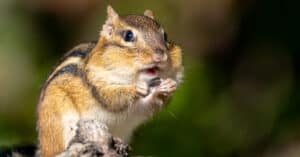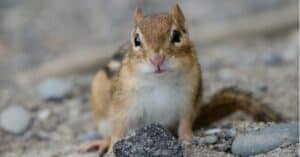Chipmunks don’t hibernate, but they go into a hibernation-like state called torpor. They wake up more frequently than traditionally hibernating animals, but they sleep for days at a time. They stay in their dens, and their bodies’ metabolisms slow down considerably.
Learn more about chipmunks and hibernation in this article, from where chipmunks go in winter to what they eat.
Do Chipmunks Hibernate?
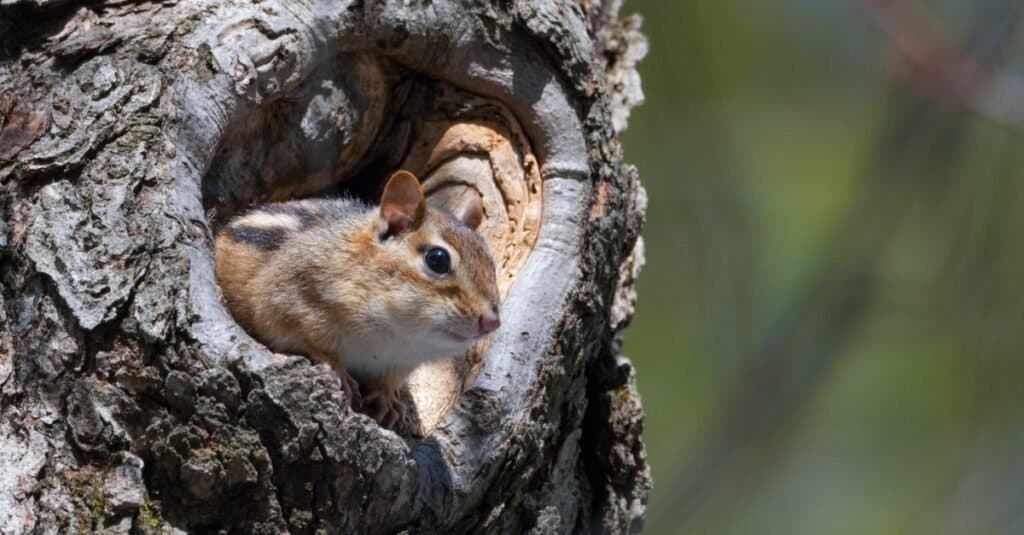
Chipmunks go into torpor, a hibernation-like state that they wake from every few days.
©iStock.com/Kyle Bedell
During the winter, chipmunks tend to stay in their burrows and go into a hibernation-like state called torpor. It’s not considered true hibernation because they wake up once every few days.
During torpor, chipmunks’ metabolisms slow down. Their body temperature drops to just 40 degrees Fahrenheit, and their hearts beat just four times a minute. This is a drastic change from their springtime temperature of 94 degrees and their regular heart rate of 350 beats per minute!
Where Do Chipmunks Hibernate?
Chipmunk burrows are complicated structures that can be built out to 30 feet long. They begin with a hole dug about two feet underground, leading to a long run. This run leads to the chipmunk’s nest, located in the center of the burrow. Surrounding the nest, a chipmunk will dig out crevices to store food, use the bathroom, and give birth to its young. These food stores are incredibly important during the winter months.
Chipmunks tend to hoard much more food than they can eat. Since they live alone in their burrows and guard them readily, they only need to feed themselves. However, they can gather food very quickly. A chipmunk can collect over 300 acorns in just two days—enough to feed itself through the whole winter.
While female chipmunks live with their young for about six weeks, chipmunk pups aren’t born until spring, so there’s no need to feed babies during the winter season.
What Do Chipmunks Eat During Winter?
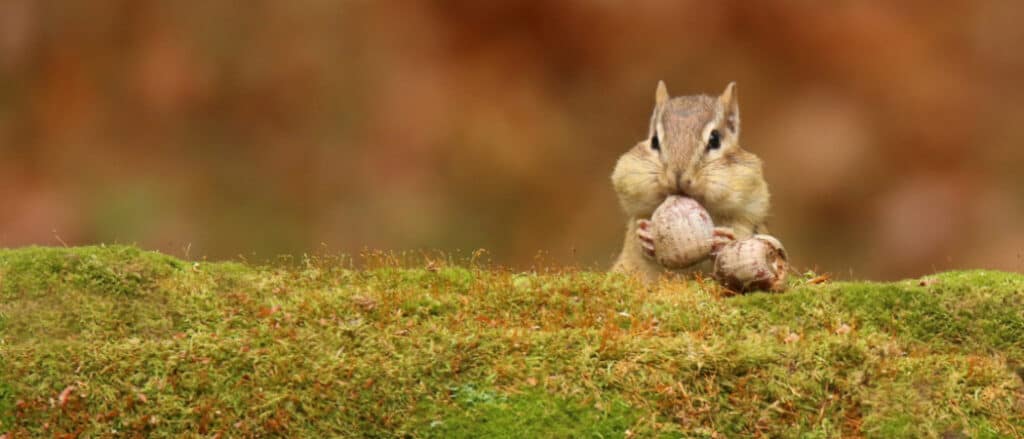
Chipmunks eat a diet of seeds, nuts, fruit, grain, insects, and small animals like mice and baby birds.
©iStock.com/suefeldberg
Chipmunks only sleep a few days at a time during hibernation, frequently waking to eat, poop, and elevate their body temperature so that it doesn’t drop too low. They’re unlikely to leave their burrows during this time because they’ve already stored everything they need in their den.
Chipmunks have a varied, omnivorous diet. This includes:
They likely won’t seek out eggs, birds, or mice to eat but are opportunists who take the chance when it arises. For instance, it’s unlikely for a chipmunk to drag multiple mice back to its burrow to snack on through the winter.
What Months Do Chipmunks Hibernate?
Since chipmunks live in varied environments, they don’t have a singular torpor period. It depends on when it gets cold and when the weather heats back up.
Most chipmunk species are found in North America, from Canada all the way to Mexico. Siberian chipmunks are the only species that aren’t found in North America. Instead, they live in northern Asia. This is quite a range of climates. The time of year a chipmunk goes into torpor, and the temperatures that cause it to do so, vary by species and habitat.
Do Chipmunks Come Out During The Winter?
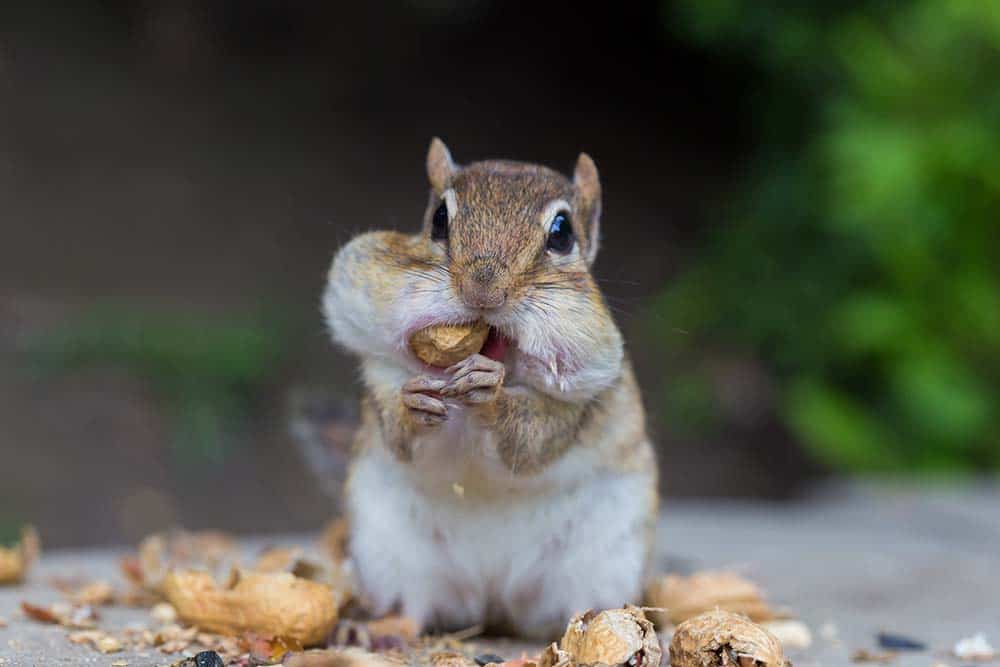
Throughout the winter months, chipmunks wake to eat every few days.
©colacat/Shutterstock.com
On warm winter days, you might see a chipmunk prancing about. However, chipmunks typically stay in their burrows until the weather warms up in the spring.
How Many Chipmunks Live Together?
Chipmunks are solitary animals, meaning that they live alone and only interact during the breeding season. Females will also spend around six weeks caring for their young before they go out to live on their own, digging new dens to live in. Each burrow typically houses just one chipmunk unless a female currently lives with her offspring.
However, chipmunks have a great communication system that is primarily used to warn others of predators. This signifies that they care about the survival of their colonies—they’re just introverts, I guess!
Can Chipmunks Freeze To Death?
Chipmunks can freeze to death if forced to endure cold temperatures. However, this is why they go into torpor. It protects them from dying in the winter months. Their dens are also incredibly helpful. Dug far underground, they’re warmer than the surface level. Burrows are also great for storing food and using the bathroom without going out in the cold.
Chipmunks almost always poop in their dens and even have a special nook just for going potty.
The photo featured at the top of this post is © Ryan Narron/Shutterstock.com
Thank you for reading! Have some feedback for us? Contact the AZ Animals editorial team.




